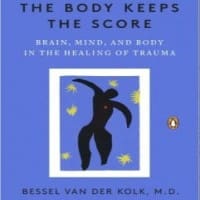
Understanding Trauma: Based on the book by Bessel Van Der Kolk “The Body Keeps the Score”
This training provides an overview of trauma’s effects on the brain, mind, and body, based on principles from the book The Body Keeps the Score by Bessel van der Kolk; focusing on the neuroscience of trauma, attachment, and the body’s response to traumatic experiences. Participants will explore evidence-based approaches for working with trauma survivors.
Upon completion of this training, learners will be able to:
- Explain how trauma impacts brain function and physiological responses.
- Identify the connections between attachment, stress, and trauma.
- Analyze the role of implicit and explicit memory in trauma processing.
- Apply trauma-informed strategies to support recovery and emotional regulation.
Social workers completing this course receive 2 Clinical asynchronous continuing education credits.
For other board approvals, this course qualifies for 2 hours of Clinical continuing education training.
Course Instructor: Dreya Blume, MSW, LCSW
Recording Date: 03/20/2024
Recorded Live Webinar with downloadable presentation slides and/or handouts, evaluation, and a required quiz. The learner is required to pass with a 70% or higher to achieve the CE certificate of completion. The learner is able to reset the test until a satisfactory score is achieved. CE Training Workshops, LLC, provider #1770, is approved as an ACE provider to offer social work continuing education by the Association of Social Work Boards (ASWB) Approved Continuing Education (ACE) program. Regulatory boards are the final authority on courses accepted for continuing education credit. ACE provider approval period: 8/2/2022 – 8/2/2025. CE Training Workshops, LLC has been approved by NBCC as an Approved Continuing Education Provider, ACEP No. 7091. Programs that do not qualify for NBCC credit are clearly identified. CE Training Workshops, LLC is solely responsible for all aspects of the programs. System Requirements: Firefox, Chrome, Brave, Safari, Edge on any modern operating system (Windows, MacOS, Linux, Android, iOS). A desktop browser is recommended. We do not provide support resources for issues encountered using a mobile device. For more information about our policies and board approval statements, please visit our FAQS page.
Dreya Blume, MA, LCSW is a licensed clinical social worker, with her MSW from Radford University and an MA in anthropology from the University of Hawaii. Dreya has twenty years of experience working in mental health, from case management to intensive in-home services to leading groups for addicts in recovery.
Understanding Trauma: Based on the book by Bessel Van Der Kolk “The Body Keeps the Score” (2HR) Syllabus
I. The Nature and Impact of Trauma
- Trauma as a current imprint, not just a memory
- The body’s survival response and difficulty with denial
- Self-blame and the challenge of emotional regulation
- Effects of inescapable shock and persistent stress
II. How Trauma Rewires the Brain
- Reorganization of brain regions in response to trauma
- Disrupted balance between the limbic system, brain stem, and cortex
- Role of the amygdala, thalamus, and hippocampus in trauma response
- Memory processing: fragmented, sensory, and preverbal imprints
III. Memory Systems and Neurological Patterns
- Differences between implicit (body) and explicit (narrative) memory
- “Speechless horror”: Broca’s area dysfunction and verbal inhibition
- Pre-cognitive vs. post-cognitive circuits in threat response
- Disrupted time and sequence awareness due to hippocampal impairment
IV. The Physiology of Trauma
- Constant CNS activation and eventual system fatigue
- Physical manifestations: nausea, tightness, rigidity, hypervigilance
- Chronic inability to feel joy, pleasure, or calm
- Serotonin’s role in fear regulation and the effects of SSRIs
V. Behavioral and Emotional Reactions to Trauma
- Reenactment and the “compulsion to repeat” painful experiences
- Trauma-driven behaviors misinterpreted as pathology (e.g., ADHD)
- The addictive dynamic of seeking out danger for stimulation
- Shame, numbness, and detachment from emotional life
VI. The Role of Attachment and Attunement
- Bowlby and Ainsworth’s attachment theory and child development
- Disorganized attachment: confusion, fear, and inconsistent behavior
- Mirror neurons and the importance of synchronized caregiver interaction
- Long-term effects of neglect and abuse on relational capacity
VII. The Dance of Attunement and Emotional Development
- Delight, rupture, repair, and reconnection as key bonding processes
- Failure to soothe and acknowledge distress disrupts emotional growth
- Secure attachment as foundation for empathy, self-regulation, and agency
- Role reversal, emotional numbing, and fear-driven bonding patterns
VIII. Approaches to Healing Trauma
- Importance of body-based therapies to regulate nervous system
- Somatic experiencing: releasing stored trauma through physical awareness
- EMDR and the role of sensory processing in trauma recovery
- Emotional Freedom Technique (EFT) and memory reconsolidation
IX. Rethinking Traditional Talk Therapy
- Limitations of CBT and prolonged exposure for trauma
- The importance of integrating body, brain, and emotional awareness
- Risks of retraumatization through repeated narrative retelling
- Healing as reclaiming presence, control, and safety in the body
X. Clinical Insights and Practical Strategies
- Helping clients tolerate distress without being overwhelmed
- Using sensory modalities (music, movement, breathwork) to support healing
- Trauma-informed language, attunement, and co-regulation
- Empowering clients to engage the present moment and rebuild agency


